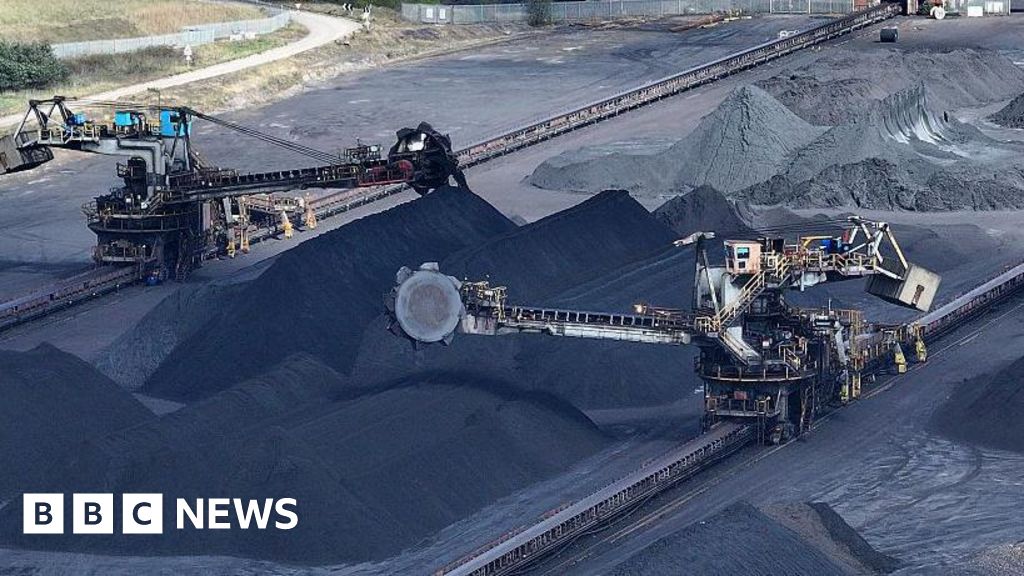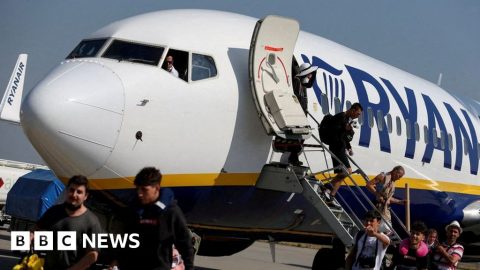
British Steel’s blast furnaces are set to continue running with a delivery of enough raw materials to keep them lit for the “coming weeks” due on Tuesday, the government has said.
Coking coal and iron ore from the US will be unloaded at Immingham docks and transported to the Scunthorpe site after a scramble for supplies.
A separate shipment of materials is back on its way to the UK from Australia after a legal dispute over who owned the cargo was resolved between the government and British Steel’s owner Jingye.
The government seized control of the business over the weekend following a breakdown in talks with its Chinese owner amid accusations it was planning to switch the furnaces off.
Industry minister Sarah Jones told the BBC: “There is an shipment in Immingham Port at the moment that the secretary of state will be seeing today and we’re expecting that shipment to be delivered to Scunthorpe today.”
Jones said the government had reached “a steady state” in terms of how the blast furnaces will be operated.
“We are hoping as you know to bring in a private sector partner as part of the future of Scunthorpe but those conversations are ongoing,” she said.
If the furnaces were starved of fuel and went out, the UK would no longer have the capability to produce so-called virgin steel, due to the process of restarting them being extremely difficult and costly.
Virgin steel-making involves iron being extracted from its original source to be purified and treated to make all types of steel used in major construction projects, such as new buildings and railways.
Scunthorpe’s furnaces produce molten iron by splitting rocks containing iron ore in a chemical reaction that requires intense heat. If the temperature of the furnaces drops too low, it can lead to permanent damage.
The government said the materials from the US would be enough to keep the steel-producing furnaces running for the coming weeks and added officials were working to “get a steady pipeline of materials to keep the fire burning”.
The materials have been paid for by the government, but the cost has not been revealed. The plant, which employs 2,700 people, is said to be in a “far better position” as a result of the government’s intervention, according to union officials.
Jones told the BBC: “The costs that we will incur are from our existing budgets. We have a £2.5bn fund for steel within the department for business so we won’t be drawing down on any extra resources and people can be reassured of that.”
On Tuesday, the Business Secretary Jonathan Reynolds will travel to Immingham in north east Lincolnshire where the raw materials will be unloaded and transported to British Steel.
He said the government had moved “decisively” to secure the raw materials needed to “help save British Steel”, adding that UK industries depended on the company.
Beijing has accused the British government of “politicising trade co-operation”, and said its move to take control of British Steel had raised doubts about investment in the UK.
On Saturday, an emergency law was rushed through Parliament, giving the government control of the site to prevent Jingye from closing the furnaces against ministers’ wishes.
The government has appointed two long-standing British Steel employees to run the plant on an interim basis.
The situation at the site has raised questions about Chinese investment in industries the government has deemed strategically critical.
The government has so far stopped short of taking British Steel back into full public ownership, but has not ruled out nationalisation, while also looking for potential private investors to fund operations.
China’s embassy in the UK has urged ministers to negotiate with Jingye to “find a solution acceptable to all parties”.
In March, Jingye said its Scunthorpe site was losing £700,000 a day, which it said was “no longer financially sustainable”, and the company began a consultation on job cuts.
Government talks with Jingye last week failed to produce a breakthrough. The government said the company had rejected an offer of £500m in public money to help keep the furnaces operating, and had demanded more than twice as much with few guarantees it would keep the plant open.
Business Secretary Jonathan Reynolds said it “became clear” to the government that Jingye was intent on closing down the blast furnaces no matter the financial support offered, prompting it to secure control of the site from its owner.









Recent Comments